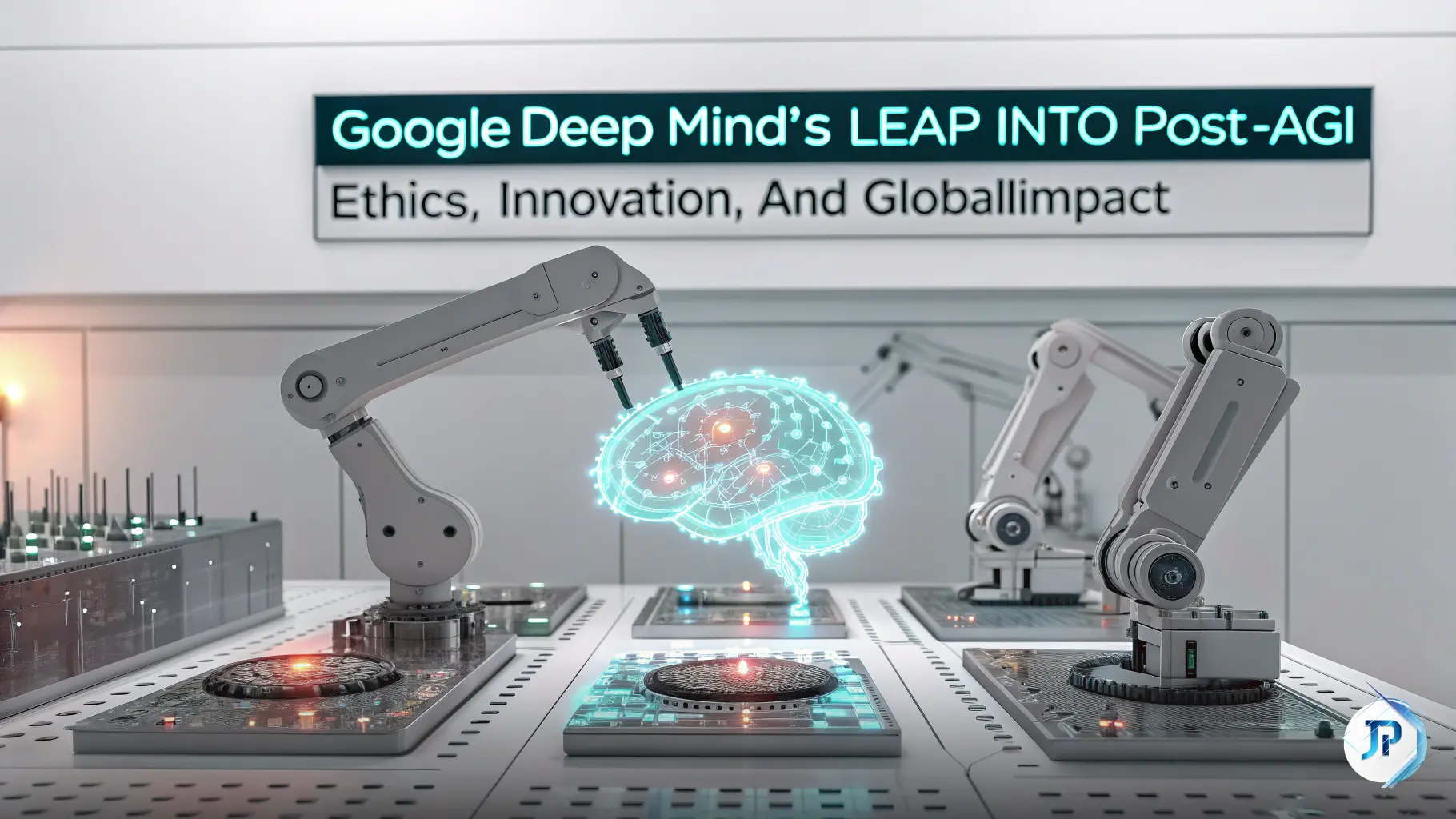Google DeepMind Is Hiring a Post-AGI Research Scientist: What It Means for the Future

Google DeepMind's search for a Post-AGI Research Scientist signals a major shift in AI development. Explore what this means for the industry, society, and our technological future.
Introduction
In a move that has sent ripples through the tech industry, Google DeepMind has posted a job listing that few could have imagined even a decade ago: a Post-AGI Research Scientist. This isn't just another technical position—it's a clear signal that one of the world's leading AI research labs believes we're approaching a new era in artificial intelligence. As we navigate through 2025, this announcement raises profound questions about where we stand in the AI timeline, Google's internal progress toward Artificial General Intelligence (AGI), and what a "post-AGI" world might actually look like.
Unpacking Google DeepMind's Groundbreaking Job Posting
Google DeepMind's job listing for a Post-AGI Research Scientist is as groundbreaking as it is intriguing. The position requires expertise that moves beyond developing AGI capabilities to exploring "post-AGI applications"—applications and frameworks in a world where AGI has already been achieved. Let’s break this down further:
- Responsibilities and Requirements: The role reportedly demands expertise in cutting-edge AI research, ethical governance frameworks, and interdisciplinary collaboration.
- Significance of "Post-AGI": Unlike previous AI roles focused on achieving AGI, this one implies that advancements have been made and DeepMind is preparing for a new age—a post-AGI reality.
- Comparison to Earlier Positions: Previous DeepMind roles emphasized breakthroughs in machine learning and problem-solving systems. This role suggests anticipation of a major impending leap in AI capability.
Paired with DeepMind’s impressive research portfolio in reinforcement learning and model optimization, this hiring decision aligns with its long-standing role as a pioneer in AI development.
What This Reveals About Google's AGI Timeline
This job posting gives us significant clues about where DeepMind and Google stand in their AGI trajectory. Here are some points worth noting:
- Google's Internal Progress: It suggests that DeepMind believes the development of AGI—or a framework close to it—is not decades away but is a near-term possibility.
- Comparative Analysis: Compared to competitors like OpenAI or Anthropic, DeepMind's move appears bold and ahead of the curve. While others work to refine sophisticated large language models, this shift hints at groundbreaking progress behind closed doors.
- Milestones Achieved: This job wouldn’t exist unless critical AGI-related milestones were reached, such as universal model accuracy or stability across diverse tasks—a feat requiring immense computational, ethical, and technical advancements.
- Strategic Positioning: Whether a calculated risk to claim leadership or an indicator of genuine breakthroughs, it positions Google as a front-runner in the AGI race.
The Implications of Post-AGI Research for Society and Industry
The acknowledgment of a potential post-AGI era raises significant hopes and red flags for society and industry alike. Below are key areas of impact:
- Potential Research Areas: Post-AGI research could include developing frameworks for human-AGI collaboration, superintelligence safety measures, and understanding the socio-economic dynamics in an AGI-driven world.
- Ethical and Governance Challenges: AGI’s potential to outpace human intelligence necessitates robust ethical and democratic frameworks to avoid misuse or accidents.
- Economic and Labor Shifts: The transition to post-AGI systems may redefine labor markets, supercharge productivity, and widen socio-economic disparities if not managed carefully.
- AI Safety: DeepMind’s historic focus on AI safety contrasts its competitors and adds urgency and depth to its ethical trajectory.
- Geopolitical Impact: Attaining AGI supremacy could reconfigure the balance of technological power globally, sparking international collaborations—or rivalries.
Expert Perspectives on DeepMind's Bold Move
To truly grasp the significance of this announcement, let’s consider both optimistic and skeptical perspectives:
- Optimistic Views: Experts like Nick Bostrom highlight that a shift to post-AGI research shows forward-thinking and pragmatism in preparation for a transformative future.
- Cautious Voices: Skeptics warn that announcing such roles could overinflate expectations within the research community and the media, prematurely influencing public perceptions.
- Investment Community: Alphabet investors may see this as aligning with long-term growth imperatives in AI, offering massive payoffs if AGI materializes sooner rather than later.
- Government Concerns: Policy experts may react by accelerating AI governance discussions, knowing the implications of AGI-related transitions could affect national security.
What This Means for the Future of Technology and Humanity
Lastly, DeepMind's recruitment move raises profound questions and opportunities for the future:
- Timelines for AGI Deployment: If post-AGI roles are being hired today, functional AGI might become a commercial reality within the next few years.
- Impact Beyond AI: This advancement could act as a catalyst for emerging fields like quantum computing, personalized medicine, and space exploration.
- Philosophical Questions: How will humanity redefine its purpose and significance in a world potentially outperformed by AGI?
- Guardrails and Governance: Immediate efforts to set governance rules, ethics, and fail-safes are vital to prevent detrimental outcomes from unchecked AGI deployment.
Conclusion
Google DeepMind's search for a Post-AGI Research Scientist represents much more than an interesting job posting—it's a watershed moment in technological history. Whether this proves to be premature optimism or a genuine indicator that AGI is within reach, the mere existence of this role forces us to confront the reality that the line between science fiction and science fact continues to blur. As we move through 2025 and beyond, the conversation about artificial general intelligence has clearly shifted from "if" to "when"—and now, apparently, to "what comes after." The questions facing society, policymakers, and the tech industry have never been more profound or urgent.
Looking to learn more or prepare your organization for a post-AGI era? Get in touch and start a conversation today.